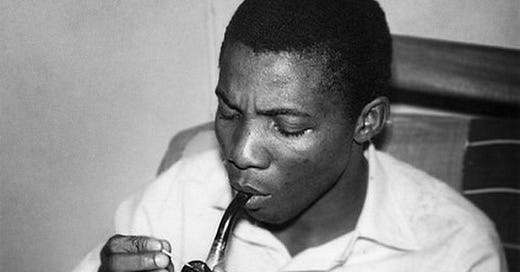WHERE IS CHRISTOPHER OKIGBO’S VOICE?
Photo credit: Internet Archives
Poet and Doctoral candidate (in Pharmacy o!) Moyo Orimoloye sent me the link to Christopher Okigbo’s voice shelved in the online archive of the British Library. For context, Christopher Okigbo was a poet and contemporary of Chinua Achebe and Wole Soyinka. In some quarters, he is described as the fourth element of the literary quartet. A native of present-day Anambra state, he was killed on the war front during the Biafran war. A violent end to his prodigious talent and a quick fix for the plagiarism claim that plagues his rather slim body of work. It was particularly refreshing to hear Okigbo speak about his practice as a poet in an affected Igbo accent. He was visiting London and seemed to be having a good time during this interview, blending shamanism with modernism in what appeared to be a top-of-the-cuff razzle…
Keep reading with a 7-day free trial
Subscribe to London Listening Sessions to keep reading this post and get 7 days of free access to the full post archives.




